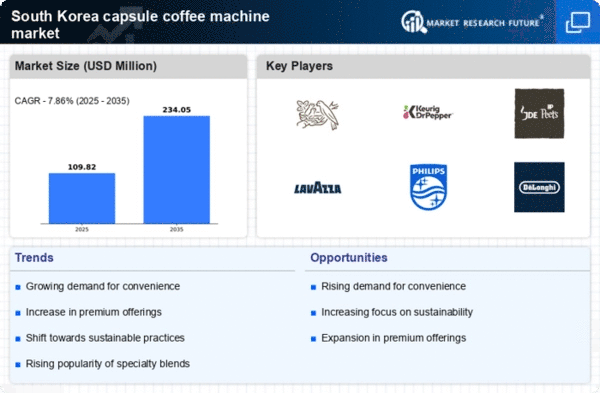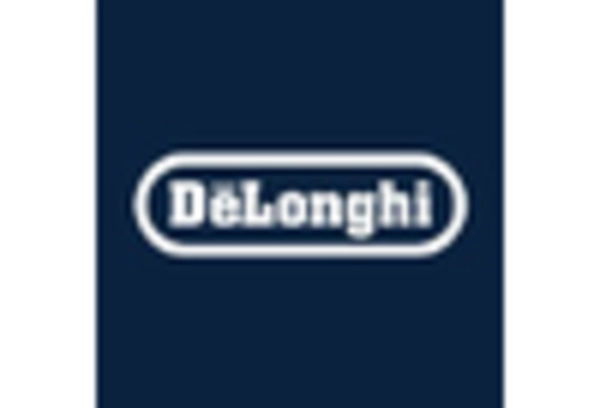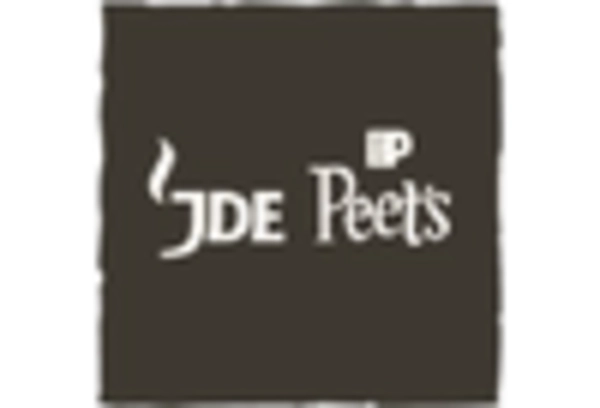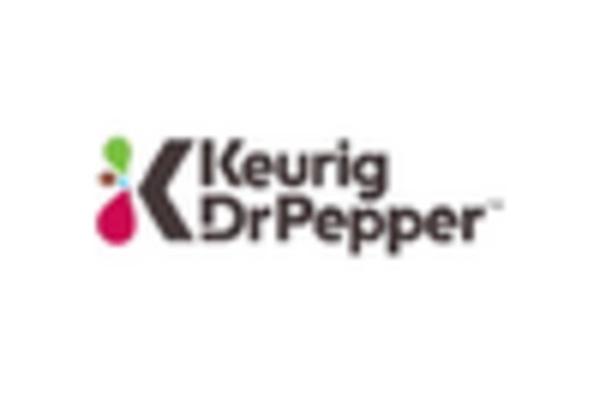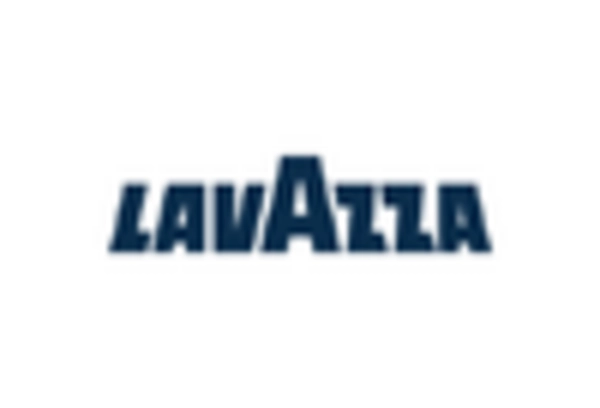Growing Coffee Culture
The capsule coffee-machine market is significantly influenced by the burgeoning coffee culture in South Korea. With an increasing number of specialty coffee shops and a rising appreciation for gourmet coffee, consumers are becoming more discerning about their coffee choices. This cultural shift is driving demand for high-quality coffee products, including capsules that offer diverse flavors and blends. According to recent surveys, approximately 60% of South Koreans express a preference for coffee over traditional beverages, indicating a strong market potential. As consumers seek to replicate café-quality coffee at home, the capsule coffee-machine market is poised for growth, catering to this evolving consumer preference.
Health and Wellness Trends
The capsule coffee-machine market is also being shaped by the growing health and wellness trends among South Korean consumers. There is an increasing awareness of the health benefits associated with coffee consumption, such as improved cognitive function and antioxidant properties. As a result, consumers are gravitating towards premium coffee capsules that offer organic or specialty blends. The market for organic coffee capsules has seen a notable increase, with sales rising by approximately 15% in the past year. This trend suggests that health-conscious consumers are willing to invest in higher-quality products, thereby driving growth in the capsule coffee-machine market. Manufacturers are responding by expanding their offerings to include healthier options, further enhancing market dynamics.
Urbanization and Space Constraints
The capsule coffee-machine market is benefiting from the ongoing urbanization in South Korea, where living spaces are becoming increasingly compact. As more individuals reside in apartments with limited kitchen space, the demand for compact and efficient coffee machines is on the rise. Capsule coffee machines, known for their space-saving designs and ease of use, are particularly appealing to urban dwellers. This trend is reflected in market data, which indicates that sales of compact coffee machines have increased by 20% in urban areas over the last year. As urbanization continues to shape consumer lifestyles, the capsule coffee-machine market is likely to see sustained growth, catering to the needs of space-conscious consumers.
E-commerce Growth and Online Shopping
The capsule coffee-machine market is experiencing a transformation due to the rapid growth of e-commerce and online shopping in South Korea. With an increasing number of consumers preferring to shop online for convenience, the availability of capsule coffee machines through various e-commerce platforms is expanding. This shift is supported by data indicating that online sales of coffee machines have surged by 30% in the past year. As consumers seek easy access to a wide range of products, including coffee capsules, the capsule coffee-machine market is likely to benefit from this trend. Retailers are investing in online marketing strategies to capture this growing segment, further enhancing the market's potential.
Technological Advancements in Brewing
The capsule coffee-machine market is experiencing a surge in technological innovations that enhance user experience. Smart features, such as app connectivity and programmable settings, are becoming increasingly prevalent. These advancements allow consumers to customize their brewing preferences, leading to a more personalized coffee experience. In South Korea, the integration of IoT technology in coffee machines is particularly noteworthy, as it aligns with the tech-savvy nature of the population. The market is projected to grow at a CAGR of approximately 8% over the next five years, driven by these technological enhancements. As consumers seek convenience and quality, the demand for advanced brewing technologies in the capsule coffee-machine market is likely to rise, further solidifying its position in the competitive landscape.


